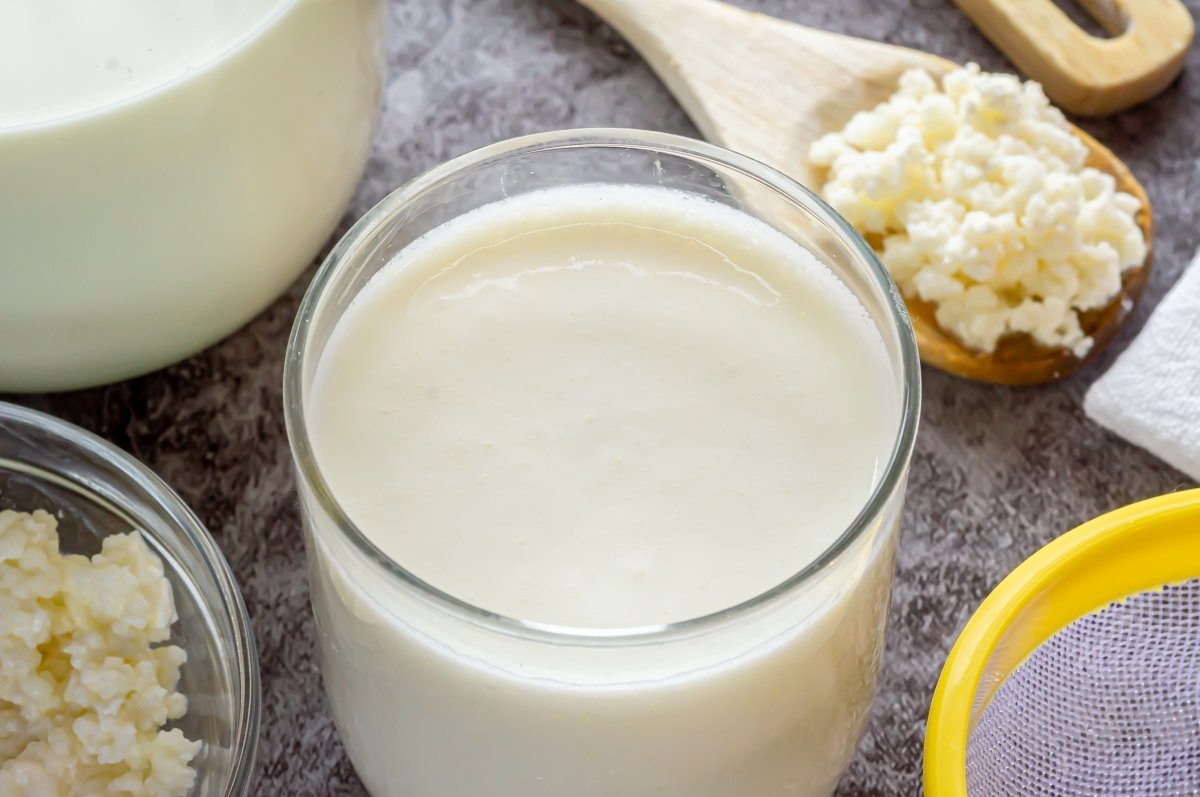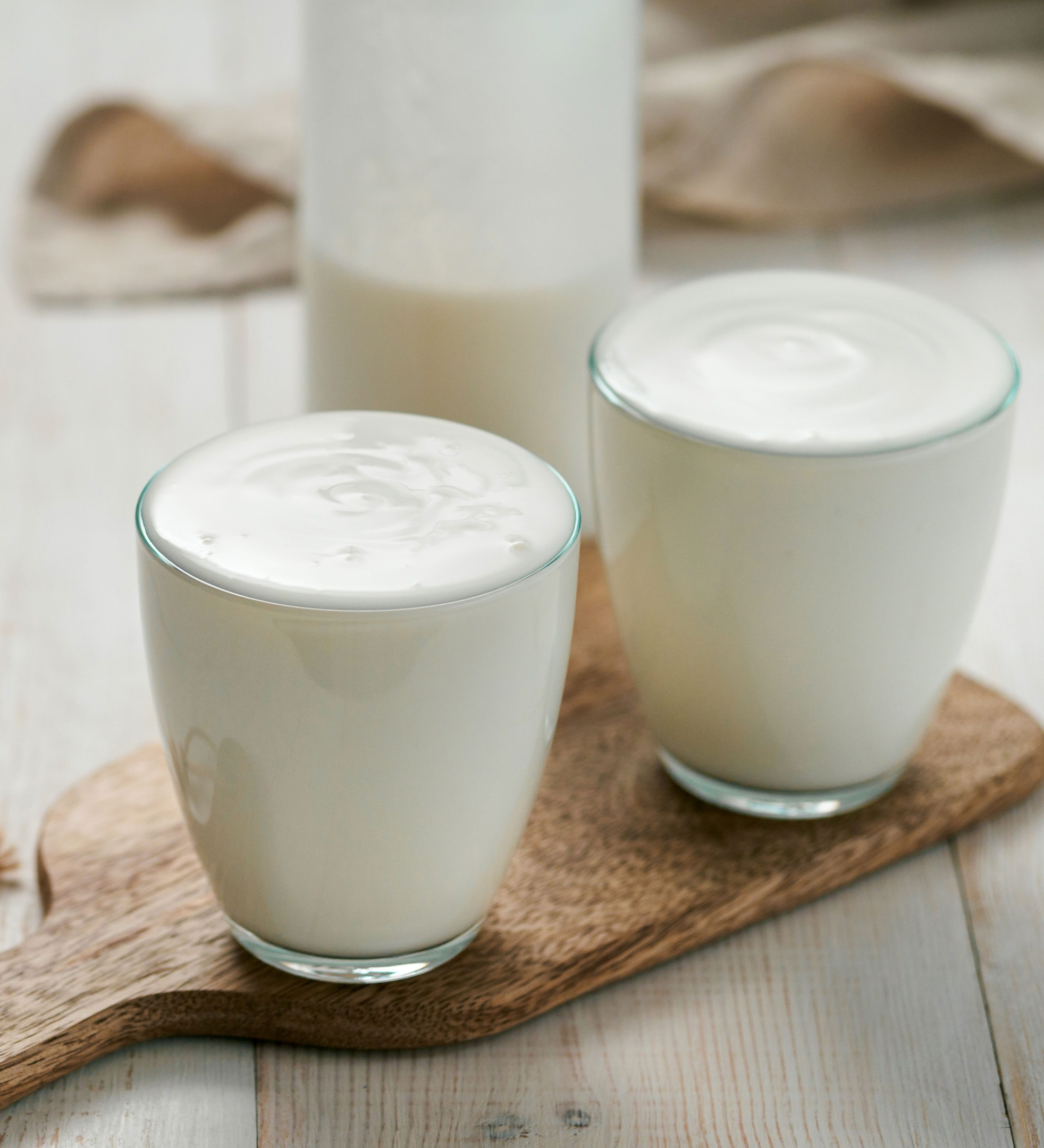
Today, we’re diving deep into a topic that has probably crossed your mind—Can you enjoy kefir while pregnant? Now, I know we’re all looking for ways to maintain our glow and significantly boost our health when a little munchkin grows inside us. So let’s get to the bottom of this kefir question, shall we?
What is Kefir, Anyway?
In a nutshell, kefir is a fermented dairy product resembling drinkable yogurt. It’s packed with probiotics, vitamins, and minerals. Now, fermented foods and pregnancy aren’t always mentioned in the same breath, so let’s explore why.

The Health Benefits of Kefir: A Deeper Dive
Probiotics Galore
Ah, pregnancy cravings! One minute, you’re craving chocolate; the next, it’s a tub of olives. Ever wondered why? Your body is like a high-performance vehicle right now, and cravings are its way of asking for specific fuel—nutrients. Let’s discuss one super fuel that could be your new best friend—kefir. What makes kefir a standout? Probiotics, and lots of them.
Regulates Your Gut
Probiotics are good bacteria that hum your digestive system. During pregnancy, your gut health is more important than ever. A balanced gut can make you less susceptible to gastro issues like constipation or diarrhea—common issues accompanying pregnancy.
Morning Sickness Relief
Research suggests healthy gut flora can ease morning sickness. So, if you’re dreading those bouts of nausea every morning, a cup of kefir might be worth trying as a natural remedy.
Mood Enhancer
Have you ever heard of the gut-brain connection? A healthy gut can also influence your mood. And let’s face it, pregnancy hormones can make your emotions feel like a roller coaster. Probiotics in kefir can help stabilize your mood, ensuring you and your baby remain in good spirits.
A Calcium Paradise
Kefir is teeming with calcium, which is invaluable during pregnancy. Calcium supports the development of your baby’s bones, teeth, and even their tiny heart.
Magnesium Mania
Don’t underestimate the power of magnesium. It plays a role in hundreds of biochemical reactions in your body. For pregnant women, magnesium can help alleviate muscle cramps and is crucial for developing your baby’s nervous system.
Vitamin D: The Sunshine Nutrient
Many of us know Vitamin D’s role in bone health, but did you know it also plays a crucial part in your baby’s growth? A deficiency in Vitamin D can lead to complications like low birth weight and even delayed physical development.
Besides these, kefir contains many other nutrients like Vitamin K2, B12, and essential amino acids. It’s like a multi-vitamin in a glass!
Immunity Builder: Your Health Shield
With a baby on the way, you want to build a fortress around both of you. Kefir’s unique combination of vitamins, minerals, and probiotics creates a potent immune-boosting elixir.
Anti-Inflammatory Properties:
Inflammation is often the culprit behind many health issues. Kefir contains bioactive compounds that have anti-inflammatory effects.
Antimicrobial
Some strains of probiotics in kefir are also known to have antimicrobial properties, meaning they can fend off harmful bacteria, potentially decreasing your chances of infections during pregnancy.

The Other Side of the Coin: Risks Involved with Drinking Kefir While Pregnant
Let’s talk about some of the cautions you’ll want to remember when sipping on kefir while expecting. Though it’s tempting to jump headlong into this probiotic pool, remember that it’s always best to take a well-rounded view, especially when there’s a baby on board. So, let’s not ignore the risks of drinking kefir during pregnancy. One of the biggest concerns is potential bacterial contamination. Especially if you’re tempted to go the homemade route with your kefir, be extra cautious.
The fermentation process requires a clean environment and precise steps. Any mistake, such as using non-sterilized containers or letting the culture ferment too long, could lead to contamination by harmful bacteria like Salmonella or E. Coli.
During pregnancy, your immune system works overtime to protect you and your baby. Introducing harmful bacteria could lead to severe complications like food poisoning, which you want to avoid.
Now, let’s shift gears to another issue: lactose content. You may have heard that the fermentation process in kefir breaks down some of the lactose found in milk. While this is true, and many lactose intolerants find they can tolerate kefir, it’s not guaranteed.

If you know you have lactose intolerance or a milk allergy, tread cautiously. Even small amounts of lactose or milk proteins can cause gastrointestinal discomfort, allergic reactions, or even anaphylaxis in severe cases. So, it’s not just about how your body reacts to lactose but also how this could impact your pregnancy.
High levels of gastrointestinal distress could cause unnecessary stress and complications. Therefore, if dairy has always been your frenemy, you should discuss it with your healthcare provider before adding kefir to your diet during this crucial period.

Your Guide to Enjoying Kefir Safely During Pregnancy
Go for Store-Bought Over Homemade
If you’ve caught the kefir bug and are keen to get started, here’s the first golden rule—during pregnancy, it’s safer to opt for store-bought over homemade kefir. Why? In a word: pasteurization.
Store-bought kefir is made under regulated conditions and pasteurized to kill harmful bacteria, significantly lowering the risk of bacterial contamination. Homemade kefir can be a bit of a wild card. Even if you’re an experienced fermenter, you don’t want to play roulette with your health or your baby’s well-being.
Manufacturers must meet specific safety standards, ensuring you won’t find it in your kitchen setup. Plus, store-bought options often come enriched with extra vitamins and minerals, giving you and your baby an added nutritional boost.
Check for Allergies and Intolerances
Alright, so you’re convinced and ready to add that bottle of kefir to your shopping cart. But wait, have you ever had kefir before? If this is uncharted territory for you, a chat with your healthcare provider should be your first pit stop. They can guide you on the potential benefits and risks based on your medical history and help rule out any allergies or intolerances you may not know.
Allergies can manifest in many ways, from mild itchiness to severe anaphylaxis, and pregnancy isn’t the ideal time for such experiments. A simple allergy test could spare you unnecessary discomfort and ensure you make the safest choices for you and your baby.
Moderation Makes Perfect
Eager as you might be to dive into the kefir craze, here’s the mantra you’ll want to live by: moderation is vital. Pregnancy is a sensitive time, and even too much of a good thing can have downsides. If kefir gets the green light from your healthcare provider, start by incorporating it slowly into your diet.
Try a small glass as part of your breakfast or as an afternoon snack. Monitor how your body reacts—As a mom-to-be, you should be aware of any gastrointestinal issues, skin changes, or sudden mood swings if you try kefir. Remember, you’re not just eating for one anymore; your baby’s system is far more sensitive than yours. Starting small lets you see how your body reacts before making kefir a mainstay in your prenatal nutrition plan.
Final Thoughts on Drinking Kefir While Pregnant
To sip or not to sip, that is the question. The truth is, kefir can be a fantastic addition to your prenatal diet, offering a rich source of nutrients and probiotics. However, it’s essential to be cautious like anything else during this precious time. Always consult your healthcare provider before adding something new to your diet. That’s the lowdown on enjoying kefir while pregnant.
Until next time, stay healthy and happy, mamas!


Leave a Reply